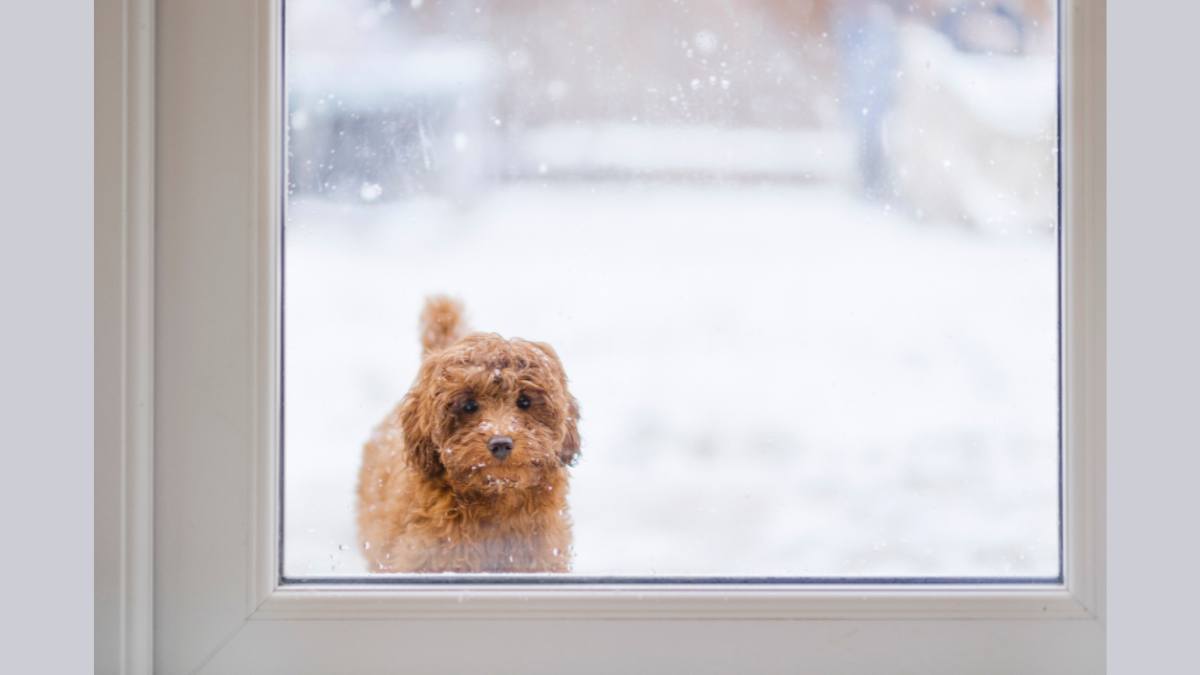Cold Weather Protection for Pets
As temperatures drop, pet owners must take extra precautions to ensure their furry companions stay safe and warm. Cold weather can pose significant risks, from frostbite to poisoning, so it’s essential to be prepared. Commentary from Dr Cait Finnegan (Lecturer in Small Animal Medicine) and Dr Georgina Catlow (Lecturer in Veterinary Sciences).

Modify the exercise routine
Tolerance for cold varies so adjust outdoor time accordingly—shorten walks in extreme cold, especially for elderly or arthritic pets, as icy conditions increase the risk of slips and falls.
Bundle up
No pet should be left outside for long periods in freezing temperatures. Provide a warm, draft-free shelter with thick, dry bedding. Ensure access to fresh, unfrozen water, changing it frequently or using a pet-safe heated bowl. Avoid space heaters or heated mats, which pose burn risks. Short-haired breeds benefit from well-fitted, waterproof coats, while longer-haired breeds should be allowed to maintain a thicker coat in winter.
Check those paws!
Check paws regularly for cracks or injuries. Wash off de-icing chemicals and rock salt after walks.
Prevent Poisoning
Antifreeze is highly toxic—clean up spills immediately. De-icers can also be harmful if ingested, so keep pets away from treated areas.
Don’t forget smaller pets
Rabbits, guinea pigs, and ferrets should be moved indoors or kept in insulated outdoor hutches with extra bedding. Water bottles should be checked regularly to prevent freezing.
Be Emergency-Ready
Prepare a pet-inclusive emergency kit with food, water, and medications for at least five days.
By taking these precautions, you can keep your pets safe and comfortable throughout the winter season.
Featured Academics
Media Contacts
External Communications and PR team
Phone: +44 (0)1483 684380 / 688914 / 684378
Email: mediarelations@surrey.ac.uk
Out of hours: +44 (0)7773 479911

